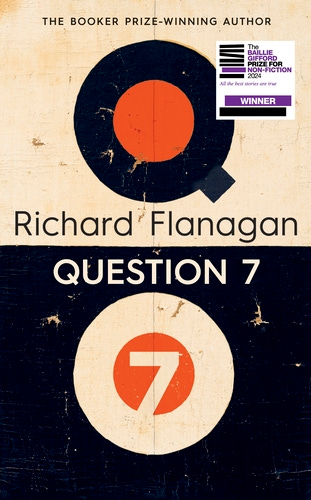The rareness of good readers?
Question 7, Richard Flanagan
Of the many necessary illusions that enable a writer to write, two are paramount—one, the vanity they can write a good book, and the other the conceit that a good book will be read by good readers, people with the insight to recognise what is good within it. But, of course, good readers are s rare as good writers, perhaps even more so, and most books inconsequence find only poor readers. Writers rail against misunderstanding, but poor writers prosper by being misunderstood, some even accidentally elevated into the pantheon of greatness in consequence, the bad clay of their work forever after glazed with the good fortune of brilliant readings.
That is from Question 7, by Richard Flanagan, which is a memoir of Flanagan’s father, who spent time in a Japanese war camp. I am seventy pages in and it has already covered the atomic bomb and H.G. Wells and Rebecca West as well as being one of the better memoirs I have read for some time. It would have been on my favourite books of 2024 but I only started it today. I would say more but I need to go and read the rest of it…



It's the same principle that makes certain accounts on socials more popular than others; and some of the "dumbest" accounts are the most popular. Fundamentally, people hate a challenge or anything that is outside their norms and experience. They judge everything accordingly.
>the bad clay of their work forever after glazed with the good fortune of brilliant readings.
This reminds me of the Nabokov line about inflated reputations like “great marble blocks passed down from generation to generation” until some intrepid critic comes along with a sledgehammer to demolish “a Balzac, a Gorky, a Mann.” Odd that he sees marble as eminently smashable, whereas for Flanagan, glazed clay is forever.